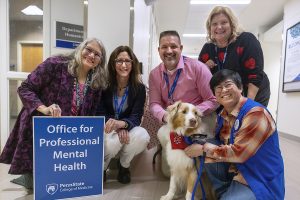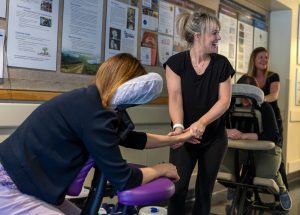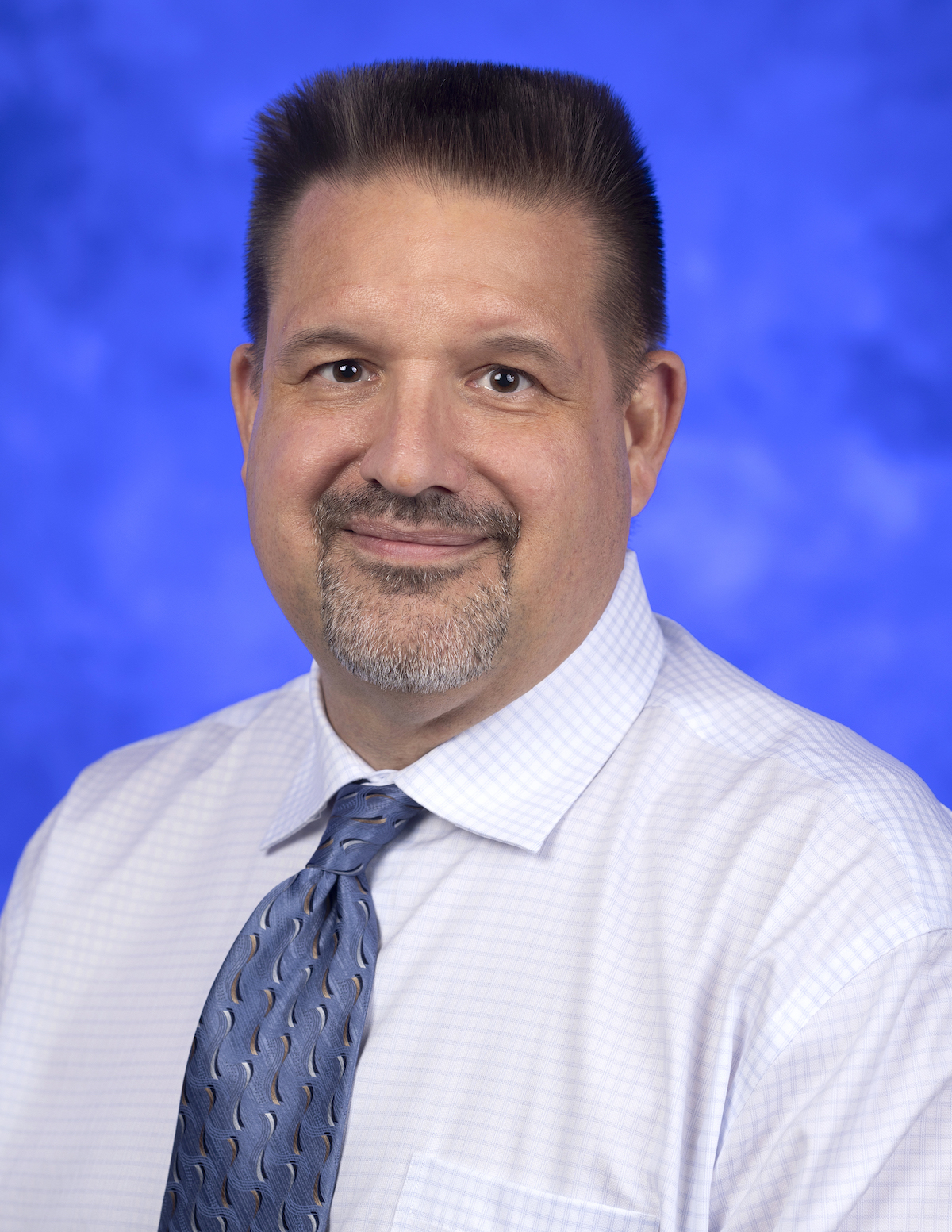Providing services for students, residents, fellows, faculty and physicians
The Office for Professional Mental Health is designed to meet the needs of Penn State College of Medicine professionals with compassion, honesty and confidentiality. All issues are taken seriously – no problem is “too small” to talk about.
The office is now offering a wide range of virtual services. See details here.
Training and working in the area of health care is one of the most gratifying career paths; however, life as a health care provider can add significant amounts of distress during a crisis such as COVID-19. During these times, individuals may find it helpful to have additional support and encouragement. The office is available to provide assistance and guidance to achieve academic and professional success.
Jump to topic
Search
Commitment to Social Justice
There can never be enough voices in support of empathy or too many speaking out against hatred, bigotry and racism.
The Office of Professional Mental Health believes in the collective power of social justice and stand with those, including Penn State College of Medicine students, residents, physicians and faculty, who have been oppressed, marginalized and misunderstood.
The Office for Professional Mental Health remains a space of hope and healing for all in need.
Crisis Resources
Help in mental health emergencies
Office of Professional Mental Health providers work on an appointment basis, but in most instances, providers should be able to respond to a mental health emergency during business hours. If a particularly urgent situation (suicidal thoughts, assault, extreme panic) presents itself during these hours, contact the office and indicate the need for immediate attention. The office will then make every effort to respond promptly.
24/7/365 options for crisis situations include:
- Penn State Crisis Line: 877-229-6400
- Crisis Text Line: Text “LIONS” to 741-741
- Mental Health Emergency Hotline: 988
- Dauphin County Crisis Intervention: 717-232-7511
- YWCA/Rape Crisis and Domestic Violence Services: 717-238-7273
- TrevorLifeline for LGBTQ Youth: 1-866-488-7386
- National Suicide Prevention Lifeline: 800-273-8255
- Veterans’ Crisis Line: 800-273-8255
- Physician Support Line: 888-409-0141 and physiciansupportline.com
- Trans Lifeline: 1-877-565-8860
- Connections: Emergency behavioral health crisis walk-in center in Harrisburg
The Penn State Crisis Line is an extension of the services offered by the Office of Professional Mental Health. Reports from calls made to this crisis line are received by the office.
SupportLinc Employee Assistance Program can be reached 24 hours a day, 365 days a year.
- Penn State Health employees: Call 888-881-5462 or visit www.supportlinc.com (group code psh)
- Penn State University employees: Call 888-501-3532 or visit www.supportlinc.com (group code pennstate)
Those experiencing a life-threatening emergency should call ext. 8888 if on campus, and 911 for off-campus emergencies, or go to the nearest emergency room.
Red Folder Guide
The “Red Folder” guide was produced by Penn State’s Student Affairs/Counseling and Psychological Services and Commonwealth Fee Board, and updated with Hershey-specific information by the Office for Professional Mental Health at Penn State College of Medicine.
The folder is a quick-reference guide to help faculty, staff and students recognize, respond to and refer to those in distress, especially students.
Mental Health and Counseling Services
The Office for Professional Mental Health provides counseling services free of charge to the following groups:
- College of Medicine graduate, MD and PA students
- Penn State Health Milton S. Hershey Medical Center medical residents and fellows
- Penn State Health Milton S. Hershey Medical Center physicians
- College of Medicine faculty
Appointments are scheduled and based on counselor availability. Counselors offer flexible appointment times, which include evening availability. The office encourages everyone to come in and talk, even if they are not sure that counseling is what they need. During the initial meeting, participants will develop a course of action with their counselor.
In addition to students on campus in Hershey, services are also available to Penn State College of Medicine MD students enrolled in the University Park Curriculum. Students in the University Park Curriculum may access services from providers by coming to the Hershey campus and/or making appointments when members of the Office for Professional Mental Health visit University Park for outreach programing. After an initial intake, teletherapy services may be used by these students. Additionally, students at University Park may make use of the Counseling and Psychological Services at University Park.
When referrals are made to mental health providers outside of the Office for Professional Mental Health, these service are normally covered under the provision of the student or employee’s health insurance policy.
There are many concerns that may lead someone to seek support from the Office of Professional Mental Health:
- Mood disorders, such as depression and bipolar disorder
- Anxiety
- Adjustment to the College of Medicine (medical school)
- Interpersonal/relationship difficulties
- Personal or family crisis
- Grief and loss
- Academic performance and motivation
- Personal growth and development
- Anger problems
- Sexuality
- Identity development and issues related to diversity
- Spirituality concerns
- Eating behaviors and body image
- Alcohol and substance use concerns, relapse prevention
- Trauma/assault
Providers within the Office for Professional Mental Health strive to uphold strict confidentiality. As such, all information shared during counseling is confidential. No one outside of the office may have access to the specifics of sessions without the written consent of students, except in situations where there is a threat or danger to life. Records are not a part of the student’s academic file.
The most common clinical services in the Office for Professional Mental Health include:
- Individual counseling
- Couples counseling
- Psychiatric evaluation and medication management
- Brief case management (providing referrals to other agencies and assisting with accessing resources in the community)
Short-term, goal-directed counseling is available to all whose concerns that fall within the Office for Professional Mental Health’s scope of practice. The majority of clients will finish their individual counseling within 16 sessions or less. In the rare instances in which longer-term services are needed, the Office for Professional Mental Health must be able to accommodate the current demand. No formal limit of services is set, and those seeking services will receive appointments, referrals and consultation based on student need and service availability.
There are many benefits to counseling, including improved relationships with friends and family, better ability to manage stress, and increased academic success.
Psychiatric evaluation and medication management is provided primarily by Dr. Martha Peaslee Levine. These services are available to the following groups:
- College of Medicine graduate, MD and PA students
- Penn State Health Milton S. Hershey Medical Center medical residents and fellows
Those learners who are unable to meet with Dr. Levine because of her role in their education and are in need of psychiatric services will be referred to Pennsylvania Psychiatric Institute (PPI) Division Street Clinic. Psychiatric providers at this location are not involved in education and will not create educational conflicts for students or trainees.
The Office for Professional Mental Health strives to provide as many clinical services as possible. However, because some services take tremendous personnel resources, present a conflict of interest, are beyond the scope of the group’s mission or require specialization, there are some services not provided, including:
- Services to alumni
- Services to students enrolled at Penn State’s Commonwealth Campuses or World Campus
- Clinical services to staff
- Specialty care
- Intensive substance-abuse treatment
- Intensive outpatient treatment
- Testing for learning disabilities and/or attention deficit and hyperactivity disorder
- Assessment and documentation for service or emotional support animals
- Forensic evaluations
- Neuropsychological evaluations
- Court-ordered treatment or treatment that is the stipulation of probation
- Fitness for Duty evaluations required by the Academic Progress Committee or other College of Medicine/Hershey Medical Center entity
- Evaluations for attorneys or courts related to difficulties such as alcohol infractions (e.g., driving under the influence) or other domestic matters such as parents seeking custodial authority of a student
- Services to those who are not medically stable or require intensive medical treatment
- Services to those with a desire to be seen more frequently than the Office for Professional Mental Health resources can provide (e.g., more than weekly), or on a long-term basis
- Services to those for whom a short-term treatment model (e.g., up to 16 sessions) would be detrimental or inappropriate to the diagnosis or clinical issues
- Services for those who needs fall outside of the clinical expertise of Office for Professional Mental Health staff
- Services for those who engage in inappropriate, harassing, menacing, threatening or violent behaviors toward Office for Professional Mental Health staff
All students, residents/fellows, physicians, and faculty seeking services will receive an initial appointment. Additional appointments (extended assessment, second opinion, etc.) may be needed to determine the appropriateness of services. After the assessment is concluded, a decision will be made about whether or not the needs fall within the role and scope of the Office for Professional Mental Health. If a need does not fall within the role and scope of the Office for Professional Mental Health, the office will work with the person requesting support to help them access necessary resources within the community.
Virtual service overview
- Services are offered via telephone and Zoom.
- Contact a provider to schedule an appointment.
Crisis resources are available here
Outreach Programming
PMH staff can join your group for Zoom-based education, training or discussion. Please contact us via email with your request.
OnDemand mental health therapy
OnDemand mental health therapy enables patients ages 10 and older to see a licensed psychologist or counselor online to address common behavioral health challenges, such as anxiety, depression and grief counseling. A typical session is 45 minutes. Therapists also can coordinate future virtual appointments with a psychiatrist, if needed.
Licensed psychiatrists can provide psychiatric assessments, evaluations and treatment through OnDemand Psychiatry. An initial consultation lasts 45 minutes. Psychiatrists also can provide care and ongoing medication management for a variety of conditions such as bipolar disorder, cognitive disorders, eating disorders and obsessive-compulsive disorder.
Patients using either the therapy or the psychiatry services will receive an individualized treatment plan, and the provider may recommend future visits and/or medication. Only psychiatrists can prescribe medication, and they are not able to prescribe controlled substances through virtual visits.
Virtual visits are secure and comply with Health Insurance Portability and Accountability Act patient privacy standards. Sessions are not recorded. Patients have the option of sharing session notes with their primary care providers through the service and may also request a copy for their own records.
To schedule an appointment, patients will need to create an OnDemand account, if they do not already have one, and enter their insurance information. Patients should check their insurance benefits plan to understand costs they may incur.
Employees and their family members may schedule their OnDemand Mental Health Therapy and/or Psychiatry appointments through the Penn State Health OnDemand website or the mobile app. Anyone who needs help setting up their account should contact the virtual health concierge team at 833-774-3627.
These virtual services do not replace the current Employee Assistance Program offered through Human Resources. The OnDemand virtual offerings are an additional means of support. Details about the EAP can be accessed through the mySolutions portal on the HR Infonet site.
Additional Penn State resources
- WellTrack – This is a 24/7 self-assessment and self-treatment for anxiety.
- Thriving Campus – This is a way to find a mental health provider nearby.
- Schwartz Center Rounds: an open forum for folks (providers, staff and students) to discuss things they’re struggling with.
- First Tuesday of the month from noon to 1 p.m. via Zoom
- Life Hacks: Life Hack Kits (wellness packages) and Lively Virtual Workshops are available for all enrolled Penn State students through Penn State Counseling and Psychological Services.
Other Services and Resources
The Office for Professional Mental Health seeks to improve the overall well-being of students on campus by offering programs that will aid students in improving their own mental health and that will decrease the stigma associated with seeking support for mental health concerns.
Workshops and Presentations
The office provides workshops, presentations and discussion groups. Providers within the office are open to supporting other offices, programs and department through consultation and providing lectures/programs that aid with increase mental well-being across the campus.
Topics that have been provided in the past include: Beating Anxiety, Depression and Suicide Awareness, Burnout Recovering and Prevention, Stress Management and Reflective Journaling.
Real Talk
The Real Talk program has been established to increase contact between Office for Professional Mental Health providers and students, and to address issues that are common for students in the College of Medicine. Real Talk is series of group meetings for graduate students, medical students and physician assistant students with the goal of providing safe and open atmosphere to discuss the challenges associated with being a student. Topics have included stress management, self-care, imposter syndrome, mindfulness and burnout.
QPR Training
QPR stands for Question, Persuade and Refer – three simple steps anyone can learn to help save a life from suicide. QPR is not a form of counseling or treatment. Rather, it is intended to offer hope through positive action. Those who learn QPR will come to recognize the warning signs, clues and suicidal communications of people in trouble, and skills to act vigorously to prevent a possible tragedy. Learn more about the QPR course and certification.
Providers within the Office for Professional Mental Health may choose to become involved with committees and programs across the campus or within the community that aid with increased well-being and decrease the stigma related to mental health. Email Dr. Martha Peaslee Levine for details at mlevine1@pennstatehealth.psu.edu.
- Self-Care tips
Self-care when police brutality has you questioning humanity & social media is not enough. This article gives tips and ideas for battling with overload from social media and examples for self-care. Some ideas for self-care are:- Take a Break
- Meditate
- Exercise
- Unplug
- Give
- Play with animals
- Get Silly
- Get Help
- Getting back to our lives in the aftermath of racial violence in the media
Racial media violence is stressful. This article offers ways to cope with racial stress, noting how Black Americans deal with racial stress and giving examples of both positive and negative coping strategies to deal with racial stress - American Psychological Associations Building Your Resilience
We all face trauma, adversity and other stresses. Here’s a roadmap for adapting to life-changing situations, and emerging even stronger than before
The Office for Professional Mental Health has compiled many resources designed to help those in the College of Medicine and Penn State Health community improve their mental health.
Resources include websites, apps for both Apple and Android devices, tip sheets on stress management, guides to improving communication and short audio guided relaxation activities.
The Office for Professional Mental Health offers a variety of events through the academic year. Events offered by the office as well as others relevant to the topic of mental health and wellness are listed here when they are available.
Click or touch each one for details and to add it to a calendar.

Love Yourself Event – February 2024

Members of the Office of Professional Mental Health meet Rocky during the Love Yourself event.

Kristen Miller, with Metta Massage and Wellness Center, left, offered massages to staff like Lawrie Romberger during an annual event to promote self-care and self-love on Feb. 14, 2024.

Volunteer Megan McKinney, left, brought in therapy dog Rocky to meet staff like Amy Ward, center, and Andrea Murray during the Feb. 14 event.

Therapy dog Rocky meets staff.

Kristen Miller, with Metta Massage and Wellness Center, second from left, offered massages to staff during the Feb. 14, 2024, event.
Mental Health America screenings
Free, anonymous, online mental health screenings are available through Mental Health America’s website. Following screening, those completing the questionnaires will be provided with information, resources and tools to discuss the results with a provider and can contact the office to make an appointment in the Office for Professional Mental Health.
- Depression
https://screening.mhanational.org/screening-tools/depression - Anxiety
https://screening.mhanational.org/screening-tools/anxiety - Bipolar
https://screening.mhanational.org/screening-tools/bipolar - PTSD
https://screening.mhanational.org/screening-tools/ptsd - Addicition
https://screening.mhanational.org/screening-tools/addiction - Psychosis
https://screening.mhanational.org/screening-tools/psychosis
Preparing for Step 1 and Step 2 exams adds significant stress to an already demanding curriculum. To help you stay calm, confident, and focused during this critical time, the Office of Professional Mental Health has put together a list of practical tips and strategies to support your mental health.
Meet the Providers
 Dr. Stephanie “Stevie” Falk is a licensed staff psychologist in the Office of Professional Mental Health.
Dr. Stephanie “Stevie” Falk is a licensed staff psychologist in the Office of Professional Mental Health.
Dr. Stephanie “Stevie” Falk is a licensed staff psychologist in the Office for Professional Mental Health and is an assistant professor in the Dept. of Psychiatry & Behavioral Health.
Dr. Falk earned her PhD in Counseling Psychology from Loyola University of Chicago and completed her pre-doctoral internship at the University of Pennsylvania in college counseling. She has more than 25 years of experience as a licensed psychologist in Pennsylvania and is a Certified Clinical Trauma Professional.
Dr. Falk has worked in a variety of clinical settings including college counseling centers, hospitals, private practice and family medical practice. Currently, she works with residents, fellows, faculty and physicians in the COM. A particular professional interest is using mindfulness to improve performance and reduce anxiety. She specializes in treating anxiety, depression, eating disorders, and all traumas.
In her time away from work, she likes to travel, walk her dog Koko, practice mindfulness, and tend to her plants.
 James Felty is a Licensed Professional Counselor (LPC) and Certified Advanced Alcohol and Drug Counselor (CAADC) with experience dealing with individuals, couples, families and groups. Specializing in substance abuse disorders, trauma-informed care, cognitive behavioral therapy, adjustment issues, relationships, and crisis. Felty is skilled in providing operational and administrative oversight of clinical counseling services.
James Felty is a Licensed Professional Counselor (LPC) and Certified Advanced Alcohol and Drug Counselor (CAADC) with experience dealing with individuals, couples, families and groups. Specializing in substance abuse disorders, trauma-informed care, cognitive behavioral therapy, adjustment issues, relationships, and crisis. Felty is skilled in providing operational and administrative oversight of clinical counseling services.
 Dr. Martha Peaslee Levine is a board-certified psychiatrist who serves as director of the Office for Professional Mental Health.
Dr. Martha Peaslee Levine is a board-certified psychiatrist who serves as director of the Office for Professional Mental Health.
Dr. Levine earned her MD from Tulane School of Medicine and completed her psychiatric residency at NYU. She has experience working in a variety of clinical settings and is pleased to offer her clinical skills and experience in helping students improve their overall health and well-being. She has assisted many students as they tackle the stress of school and works to help them define healthy coping strategies. She can offer evaluation and treatment of a variety of issues including depression, anxiety and concentration difficulties.
Dr. Levine believes that sometimes everyone needs a little help to navigate life stresses. She offers a willingness to listen and wants to work with individuals so they can discover their strengths and maximize their abilities.
Penn State has partnered with ThrivingCampus to help make it easier to know the options for care in the broader community around campus.
Explore Hershey-area providers here
A list of other counselors in the area is available by emailing PMH@pennstatehealth.psu.edu.
Contact the Office for Professional Mental Health
General Contact Information
Office location: Suite C1746, Penn State College of Medicine, Hershey, Pa.
Office email: PMH@pennstatehealth.psu.edu
Office phone: 717-531-8658
Office manager: Trudi Middleton Flynn, tmiddletonflynn@pennstatehealth.psu.edu
Scheduling an Appointment
Initial appointments and enquires should be made by contacting the Professional Mental Health office by email at pmh@pennstatehealth.psu.edu or by calling 717-531-8658. Follow up appointments, questions and prescriptions can be coordinated with the individual clinicians, by using their emails, and/or our Office Administrator through the pmh@pennstatehealth.psu.edu email. It is recommended that you copy both the clinician and office manager on follow-up emails to ensure that questions and/or concerns are handled in a timely manner.
Stephanie “Stevie” Falk, PhD
Psychologist
Primarily provides care for physicians, faculty, fellows and residents
717-531-0003, ext. 280015
sfalk@pennstatehealth.psu.edu
James Felty, MA, LPC, CAADC
717-531-8658
717-531-0003, ext. 285924
jfelty4@pennstatehealth.psu.edu
Martha Peaslee Levine, MD
Psychiatrist
Director of Office for Professional Mental Health
Primarily provides medication evaluation and therapy
717-531-8658
mlevine1@pennstatehealth.psu.edu
The Office for Professional Mental Health is located within the College of Medicine.
Offices for certain providers are in the Office for Professional Mental Health suite, C1746 in the Humanities hallway.
